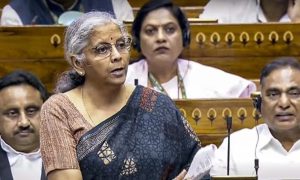Further, taxpayers who could claim 10% of ITC for invoices that were not uploaded by their supplier can now claim only 5% ITC on such invoices. This rule will come into effect from January 1 next year.
The government on Wednesday notified modifications in the GST rules in a bid to prevent fly-by-night firms from registering under GST and gaming the system by issuing fake invoices.
Under the new rules, a business will now undergo in-person verification before it is registered under GST. If an applicant opts for Aadhaar authentication, they will undergo biometric-based Aadhaar authentication at one of the facilitation centres notified by the commissioner.
At the same time, those choosing to register without Aadhaar, the GST administration would need biometric information and verification of KYC documents at designated verification centres.
Although the timeline for granting approval for Aadhaar-based registration would now be 7 day, if the applicant falls under ‘risky’ category the department will seek additional physical verification before granting registration within 30 days.
The new changes also target existing registrants who are suspected of foul play. A taxpayer’s registration could now be cancelled if ITC is claimed in violation of law. Further, if the details of outward supplies in GSTR-1 return (outward supplies) are in excess to the outward supplies declared in GSTR-3B return for one or more tax periods, the authorities can initiate cancelation process. Similarly, if details in GSTR-1, GSTR-3B and GSTR-2B are not reconciled then it would lead to cancellation of registration.
Further, taxpayers who could claim 10% of ITC for invoices that were not uploaded by their supplier can now claim only 5% ITC on such invoices. This rule will come into effect from January 1 next year.
Additionally, certain businesses will have to discharge at least 1% of their tax liability through cash due to restriction on using ITC for the full amount. These taxpayers are those whose GST turnover isn’t commensurate with their income tax profile or those supply goods and services worth more than `50 lakh in a month.
The government said that ease of doing business for genuine taxpayers, businesses entities, traders and small businesses would not be impacted as measures are based on precise identification of potentially risky taxpayers which in turn is arrived at using well defined parameters generated in an automated environment.
The new rules come on the heel of a nationwide campaign to nab fake invoice operators, which resulted in the arrest of 164 persons including 5 chartered accountants. During the drive last month, 1,768 cases were booked against 5,745 GST registered entities.





































